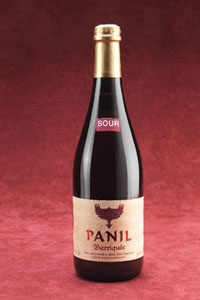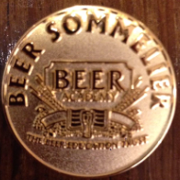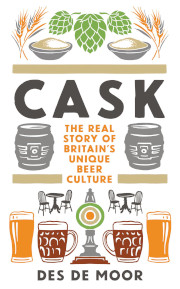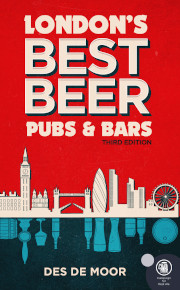
Panil Barriquée Sour
ABV: 8%
Origin: Torrechiara, Emilia-Romagna, Italy
Website: www.panilbeer.com
Italian craft brewers and drinkers seem to have taken easily to perceiving beer through a similar mindset to that used for wine. It’s an artisanal product with a definite provenance, served with food from attractive 750ml bottles. Some of it even contains grape must. And to underline the affinities even further, there’s Barriquée, a rather vinous beer with a label that even references classic wine label design, made on a vineyard by the scion of a winemaking family.
The Losis had been making Lambrusco-style wines at Torrechiara, near Parma, since the 1930s when, in 2001, Renzo Losi, already a home brewer, started making beer under the Panil name as an offshoot of the family business. A year later Renzo became almost certainly the first Italian craft brewer to experiment with barrel ageing, creating Barriquée, named with a French word for a small wooden barrel.
His inspiration was sour, aged Flemish red ale in the style typified by Rodenbach – which was once known to promote itself with the slogan “´t is wijn”. These beers are sometimes labelled the Burgundies of Flanders and some of them, like Timmermans’ Bourgogne des Flandres, have even adopted brand names accordingly.
There’s a mild version too, but I was particularly interested to try the sour, which is brewed from English, Belgian and German pale and coloured barley malts with Czech and German hops and fermented both with ale yeast and lactobacillus. After spending 15 days fermenting in steel vessels the beer spends 90 days undergoing a secondary fermentation in small French oak barrels formerly used for Cognac or Burgundy.
It’s then bottle conditioned and retained at the brewery for a further 30 days before release. As you’d expect the flavour varies and there are some complaints online of lack of consistency, but I had no problems with the 2012 vintage I bought at the excellent brewery shop at De Molen in Bodegraven, the Netherlands.
My sample poured a dark red-brown with a creamy fawn head tinged with light pink. A very funky aroma had notes of farmyard, pencil lead, chocolate, condensed milk, light toffee and cherry fruit.
A soft and lightly cakey palate immediately turned tart, the intensity softened by complex flavours of cherry fruit, red wine, juicy tangerine, chocolate and spicy tobacco. Smooth alcoholic warmth offset the lactic tartness in a refined and elegant finish with soft citrus fruit and wine-like tannins.
The beer has something of a cult following in the US and at one point two versions of the sour were produced, with the export version sourer than the domestic one, though recently there’s only been the one. Interestingly the US is also home to another celebrated craft brewer that developed from a winery – Russian River – which shares an interest in Belgian-inspired and wood aged beers.





Leave a Reply